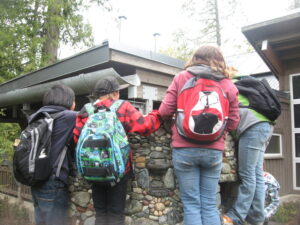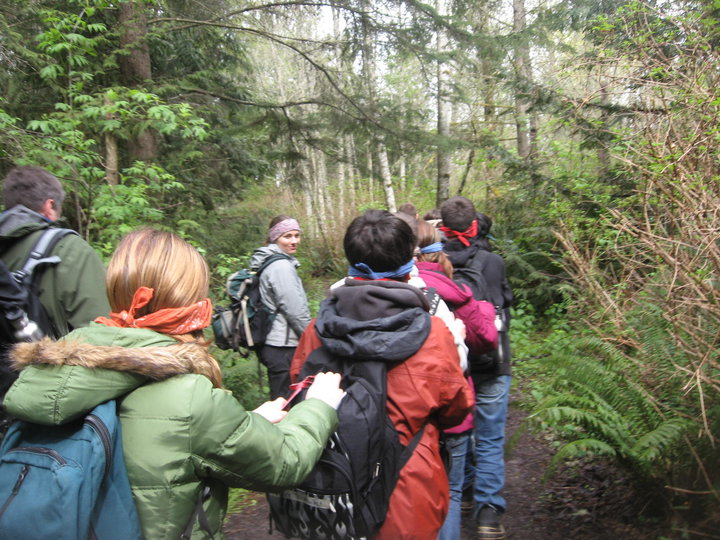Like many states, Washington has a teacher shortage. Unlike any other state, Washington passed legislation in 2022 establishing an Outdoor School program for students statewide. The combination of these two factors creates a unique demand for educators trained in outdoor-based learning.
PEI is meeting that demand through a new program currently in the early developmental stage. Pathways to Teacher Education Through Environmental & Sustainability Education and Outdoor Learning will consist of two high school Career and Technical Education (CTE) courses that provide high school students with a foundation in K-12 outdoor education.

“It puts high school kids on this career pathway and gives them a rich learning experience and an opportunity to draw on their passion for being outside,” says Dr. Tamara Holmlund, project lead. Holmlund recently retired from a nineteen-year career as a Professor of Science Education at Washington State University.
Each course will offer one CTE credit or, potentially, one English Language Arts (ELA) credit. Additionally, Holmlund explains, the goal is for students to earn dual credit at community colleges with early childhood education programs. “Hopefully, we can get a match for something like an Introduction to Teaching credit,” she says.
A group of educators from around the state gathered in mid-March to design the course. They included CTE teachers from Highline, Tukwila, and Methow Valley school districts, ESD 112 in the coastal region of southwest Washington, and representatives from the Office of Superintendent of Public Instruction’s Outdoor School for All program, Outdoor Schools Washington and the Washington School Principals’ Education Foundation.
“It’s going to be so great for high school kids who may be leaning toward the outdoor field but haven’t had those outdoor learning experiences. This is a way to take teacher education out of the indoor classroom box and demonstrate these principles of teaching. It’s connected to place, but it’s not just the ecology part of environmental education, it’s sustainability, social justice, environmental justice and scientific understanding.”
— Dr. Tamara Holmlund, EOL CTE Framework Project Lead
“The goal was to draft the course,” says Holmlund. “We’re looking at what the learning goals will be, what units need to be included, and what kinds of performance assessments need to be in place for kids to demonstrate their understanding in their specific region. We want this to be a statewide course so we need to think about what that assessment might look like in the Okanogan versus the Columbia Gorge or Tacoma.”
Once the course is drafted, Holmlund will continue to gather feedback and modify it in preparation for several of the CTE teachers to test

individual units in fall, 2023. The group plans to submit the course to OSPI for approval in October, with the goal of formally piloting it with teachers in the spring or fall of 2024.
Holmlund sees multiple potential opportunities with the course for students who are passionate about the outdoors. “It’s going to be so great for high school kids who may be leaning toward the outdoor field but haven’t had those outdoor learning experiences,” she says. “This is a way to take teacher education out of the indoor classroom box and demonstrate these principles of teaching. It’s connected to place, but it’s not just the ecology part of environmental education, it’s sustainability, social justice, environmental justice and scientific understanding. It’s really exciting.”
